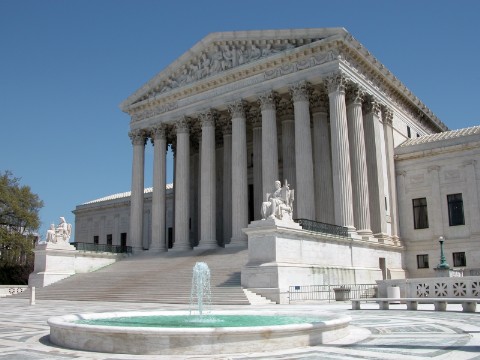 In Auer v. Robbins, 519 U.S. 452 (1997), the U.S. Supreme Court extended Chevron-type deference to an agency’s “fair and considered” interpretation of its own regulations. Today, however, the Supreme Court refused to accord binding Auer deference to the Department of Labor’s recent “reinterpretation” of regulations implementing the Fair Labor Standards Act’s (FLSA) “outside sales” exemption. That interpretation, which the Secretary of Labor first announced in a 2009 amicus brief, would have required the nation’s more than 90,000 pharmaceutical sales representatives to be reclassified overnight as overtime-eligible employees under the FLSA.
In Auer v. Robbins, 519 U.S. 452 (1997), the U.S. Supreme Court extended Chevron-type deference to an agency’s “fair and considered” interpretation of its own regulations. Today, however, the Supreme Court refused to accord binding Auer deference to the Department of Labor’s recent “reinterpretation” of regulations implementing the Fair Labor Standards Act’s (FLSA) “outside sales” exemption. That interpretation, which the Secretary of Labor first announced in a 2009 amicus brief, would have required the nation’s more than 90,000 pharmaceutical sales representatives to be reclassified overnight as overtime-eligible employees under the FLSA.
In a 5-4 opinion in Christopher v. SmithKline Beecham, the Supreme Court held that Auer deference is inappropriate where an agency’s new interpretation is inconsistent with the applicable statute and implementing regulation, and where the agency has long acquiesced to the regulated industry’s decades-long practice. “It is one thing to expect regulated parties to conform their conduct to an agency’s interpretations once an agency announces them,” Justice Samuel Alito wrote on behalf of the Court’s majority. “[I]t is quite another to require regulated parties to divine the agency’s interpretations in advance or else be held liable when the agency announces its interpretations for the first time in an enforcement proceeding and demands deference,” he concluded.
The case raised important issues about the limits of agency deference and the need to maintain appropriate checks on unpredictable and disruptive agency actions. At issue was whether pharmaceutical sales representatives are exempt from the overtime pay requirements of the FLSA. In answering that question, the appeals court below accorded no deference to the Department of Labor’s newly announced interpretation of “sales” within the meaning of the FLSA. Under that new narrow definition, an employee is deemed to engage in “sales” only when he or she actually “transfers title” in the consummation of a sale. Because pharmaceutical sales representatives do not sell pharmaceuticals directly to patients, who are the end users, they cannot possibly satisfy the Department’s strict definition.
The decision was a victory for common sense and basic fairness. It was also a victory for WLF, which filed a brief in the case arguing that administrative agencies should not be permitted to disrupt settled expectations under the pretense of ‘reinterpreting’ existing regulations, or else an important safeguard for our representative system of government will be lost. Although the Court did not use the case as a vehicle to jettison Auer deference altogether, it does place that doctrine on somewhat weaker footing going forward. It is now clear that such deference will not be automatic where an agency’s new interpretation is inconsistent with the applicable statute and implementing regulation, and where the agency has long acquiesced to the regulated industry’s decades-long practice.
For their part, the four dissenting Justices do not meaningfully address the appropriate limits of Auer deference. They merely conclude that they agree with with the Department’s interpretation irrespective of Auer.
In its brief, WLF argued that the Secretary of Labor’s new view of the outside sales exemption appeared at best to be an after-the-fact effort to justify the Department’s new litigating position and policy preference. WLF’s brief also cautioned against the enormous upheaval that the Department’s new interpretation of “outside sales” would have on legitimate reliance interests in the pharmaceutical industry—among employers and employees alike. Such concern, WLF argued, is especially warranted where, as here, an agency’s contradictory interpretation creates an unfair surprise for the affected stakeholders who had come to rely on that agency’s earlier acquiescence for well over half a century.
